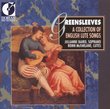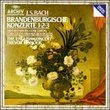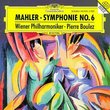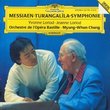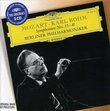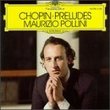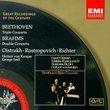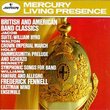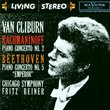| All Artists: Joseph Haydn, Andreas Spering, Capella Augustina, Roberta Invernizzi, Sophie Karthäuser, Ann Hallenberg, Anders J. Dahlin, Nikolay Borchev, VokalEnsemble Köln Title: Haydn - Il ritorno di Tobia Members Wishing: 0 Total Copies: 0 Label: Naxos Original Release Date: 1/1/2007 Re-Release Date: 11/20/2007 Genre: Classical Styles: Opera & Classical Vocal, Chamber Music, Historical Periods, Classical (c.1770-1830) Number of Discs: 3 SwapaCD Credits: 3 UPC: 747313030071 |
Search - Joseph Haydn, Andreas Spering, Capella Augustina :: Haydn - Il ritorno di Tobia
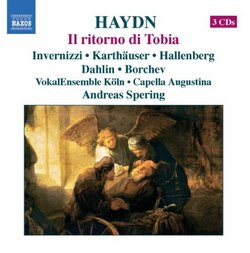 | Joseph Haydn, Andreas Spering, Capella Augustina Haydn - Il ritorno di Tobia Genre: Classical |
Larger Image |
CD DetailsSimilarly Requested CDs |
CD ReviewsA gem John Cragg | Delta(greater Vancouver), B.C Canada | 02/12/2008 (5 out of 5 stars) "The format of this oratorio is not promising -- largely a string of alternating recitatives and arias rather in the form of a classic opera seria -- on a biblical theme about which it is difficult to generate any real excitement. These negatives -- which probably account for the lack of performances of this work -- are more than offset by the genius of Haydn. Though written roughly a quarter of a century before his well known and justly celebrated oratorios and the profoundly lovely and moving final masses, this is the same genius at work and he is virtually unsurpassed in this sort of vocal writing. The work is given a first-rate performance here. Though the principals are not great stars -- at least not yet, and they are very young -- they all sing with breathtaking loveliness, even in the recitatives. The orchestra and chorus, under the always very competent and sometimes inspired conducting of Andreas Spering, complete the overall stunning effect that this work has. Naxos has produced a winner here and stolen a march on their competitors in producing a first class recording of a major work which others would find very difficult to match. It's a pity that the libretto is not translated into English, but the booklet compensates to some extent by giving short resumes of the principals, the orchestra and the chorus. All together an outstanding recording at a very good price" Superb music! Excellent cast. V. FH | RIO DE JANEIRO, BRAZIL | 01/28/2008 (5 out of 5 stars) "I'm not very fond of Haydn's vocal music. I've always found it uninteresting, and even boring. But what we have here is an oratorio in which baroque tradition shines in vocal numbers, even if it's a classical composer in line and orchestration. Some of the music reminds me of Mozart's vividness in writing for the voice. The cast is strong, except for the tenor, the Tobia, whom I liked the least. He can sing the role to the end but pushes too much to my taste sometimes. I've heard an old recording with Rolfe-Johnson and can only complain of this flaw in this recording. The rest of the cast is very good near perfection, especially Hallenberg and Invernizzi. Also, this time Naxos had the decency to include at least the libretto in italian. To me it is not a problem, for I can follow it. But I suspect that for English native speakers it can be tough. Anyway, I would not let it escape. It's well worth the price. Highly recommended." Haydn the Baroque Master! Giordano Bruno | Wherever I am, I am. | 03/06/2010 (5 out of 5 stars) "Not only Baroque, but Italian Baroque! This oratorio in the Italian language, except for a certain instrumental expansiveness, sounds a lot more like something by Antonio Caldara or Antonio Vivaldi than the Haydn of The Creation or The Seasons. And frankly, it sounds more like an opera seria than any of Haydn's 'designated' operas. I'm surprised it hasn't been staged as such, by Bill Christie for instance, somewhere in Europe. Possibly I'm an incurable baroque-nik at heart, but I find the music of "Il Ritorno de Tobia" much more exciting to listen to than the stuffy grandeur of Haydn's more famous later oratorios.
"The Return of Tobias" tells part of the story of Tobit, a blind man whose sight is eventually restored by a miracle, and his stalwart son Tobias, who is aided by the archangel Raphael. The story comes from the apocryphal Book of Tobit, included in the Catholic Bible of Haydn's Austrian patrons, the Esterhazys. It would be wise to acquaint yourself with the story before hearing this 3-CD recording, since the 'libretto' is provided only in Italian. DO NOT, however, decide to skip this performance merely because of the lack of an English translation; it's the music that matters, the brilliantly florid and emotive arias, the powerful choruses, as robust as any of Handel's, and the fully symphonic orchestral score. "Il Ritorno" is music on a grand scale, even for Vienna; at least 150 singers and instrumentalists were included in the first performance in 1775. The orchestra of Capella Augustina is not nearly so huge -- thank goodness, in terms of recording technology! - nor is the chorus of the VokalEnsemble Koln. Both orchestra and chorus perform superbly, but it's the soloists that make this recording spectacular. Soprano Roberta Invernizzi sings the role of the Angel Raffaele; the showiest arias are hers, and they are as fiery as any angel's declamations should be. More humanly emotive and yet just as florid are the arias of Anna (wife of Tobit, mother of Tobias), sung warmly and agilely by deep Swedish alto Ann Hallenberg. Tobias -- a sort of Hellenic monster-slaying hero closer in character to Perseus than to the Hebrew Patriarchs -- is sung with gentle confidence by Swedish tenor Anders Dahlin, while the blind Tobit evokes soulful Job-like Faith in the resonant baritone of Russian Nikolay Borchev. Finally there's Sara, the wife Tobias has acquired in his travels, whose devoted love is expressed in arias sung graciously by Belgian mezzo-soprano Sophie Karthäuser. A more accomplished cast of soloists would be hard to hire! Haydn wrote and apparently staged this oratorio as an act of charity on behalf of a society that provided support for widows and orphans of musicians. The audiences were "uncommonly numerous," and further stagings followed in 1784 and 1808, all in Vienna, after which the composition has languished in inexplicable oblivion. Let's hope this thrilling performance will dispel the mists of obscurity from one of Haydn's finest vocal compositions!" |

